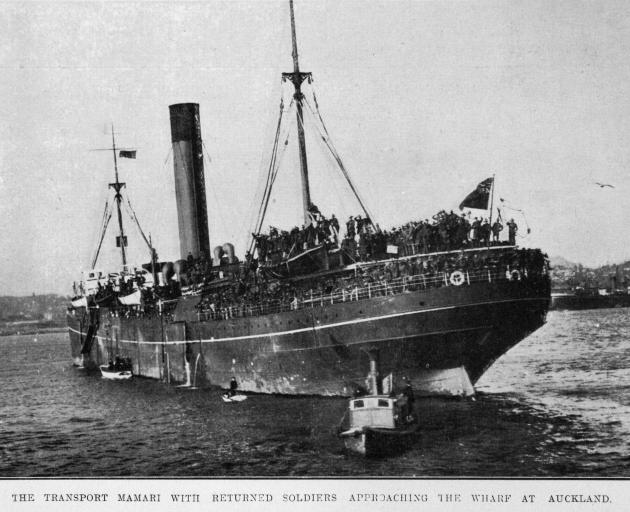
Among the evidence on the prohibition question that the Rev. John Dawson has been accumulating on his recent travels, he drew attention last night to the difference which travellers find between "wet" and "dry" ports. On his homeward journey to New Zealand the vessel got away from every "dry" American port sharp to time. Suva, the first British port they reached, is "wet". When inquiries were made by the passengers as to when they would be leaving they were significantly told to "Ask the firemen". The vessel was timed to leave at noon, but finally pulled out into the stream at 3 o'clock. Meanwhile the waiting and watching passengers witnessed from the decks most humiliating sights. A steward helplessly drunk was brought on board by two priests, who had found him in the streets. Native Fijians and Indians had to be sent round to the various hotels to collect the drunken white firemen, who were behaving in a shameful manner. The natives had to fight for their lives to bring some of these men to the wharf, and as the passengers looked down on the drunken behaviour of these white men in charge of natives some of them declared that would settle them for ever voting for the traffic again.
Dame Melba on singing
"There is no royal road to success in singing," Dame Nellie Melba says. "I rate correct breathing before even the possession of a beautiful voice, for this can be marred by faulty breath-control. Phrasing, tone, resonance, and expression - all these depend upon respiration. Here we have one of the old Italian secrets, which so many singers of our day have never found ... Life and Art are the greatest of teachers. Consider my own case. I was born with a natural trill, and absolute breath-control. Consequently, as a child of seven, I was as far advanced as more mature students are after years of study and practice. Yet for all that I had everything to learn. Even after my public debut in Brussels, as Gilda in `Rigoletto', my French was very bad - though I studied the part of Lakme under the composer himself. I had to begin French seriously, and in Brussels I put in six hours a day at it under Mlle. Tordeus. I hope vocal aspirants may be cheered by the tale of my own early struggles. Remember, I lived at the other end of the globe, as far as possible from the best musical traditions and atmosphere. At the age of 20 I was a wife and a mother; and my first concert appearance was calculated to damp all ardour and ambition. Alone I hired a hall and then went about selling tickets to my friends - people who had heard me sing in the choir, wither at the Presbyterian Church or that of St. Francis in Melbourne. But my parents were distressed at the whole affair. My father went round to all the ticket-holders and asked them as a family favour to stay away. On the great night I faced an audience of just two persons, yet I sang my whole programme through, precisely as though the place were packed with enthusiasts."
Lord Jellicoe's itinerary
Christchurch: Viscount Jellicoe laid the foundation stone of the Soldiers' Club in the presence of a great gathering of citizens. The procession through the city was headed by 300 men of H.M.S. New Zealand and 1000 returned soldiers. Speeches were delivered by the Mayor (Dr Thacker), Lord Jellicoe, Mr Alpers, Mr M'Callum (president of the R.S.A.).
- ODT, 8.9.1919.












